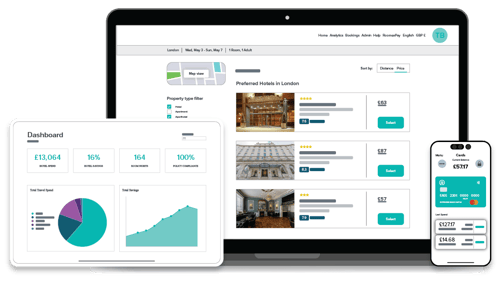Anyone who is responsible for travel booking in an organisation is well aware that there’s more to their job than meets the eye; booking accommodations is just the start of it.
The real challenge lies in ensuring the safety of employees away from the office and securing their privacy on-the-go. Unfortunately, some companies believe this is easier said than done so it can take a backseat to other tasks.
Duty of care, personal privacy and cybersecurity should be at the top of your priority list when it comes to business travel. With the right policies and tools in place, acting on best practices becomes a breeze.
Why is duty of care a concern?
Duty of care has existed for a century as the letter of law when it comes to employer responsibility towards employees. It dictates the legal responsibility that businesses have in safeguarding their staff from manageable risks.
It can take a variety of formats, but booking accommodation is one that travel bookers are most familiar with. Organisations small or large may find it easier to let team members find their own hotels or may see their internal process ignored altogether. Rather than making everyone’s lives easier, it actually invites unnecessary risk. Here’s an example:
- Janet has a last-minute meeting with a client pop up while she’s on her way back from a long business trip.
- Rather than go through the travel bookers, she books a room at her favourite hotel in the area that she’s used before because she knows she can expense it later.
- When she arrives, she learns the room was double booked and the hotel is filled up, forcing her to find last-minute arrangements.
Despite the fact that the company wasn’t involved in the decision-making process here, it’s still held liable for anything that happens to Janet during and after her journey to find new accommodation.
Sure it’s unlikely that anything will happen to Janet, but on the off-chance it does, it’s an issue. And what happens if she, for example, has an allergic reaction and now she’s technically off the grid as she booked the stay herself?
If Janet had gotten the travel booker to book the hotel using business travel software, then the business would have been able to:
- Quickly find replacement accommodation at a safe location.
- Get a real-time look at where the team member is.
Digitising the booking process means employees are more inclined to follow internal policies knowing they’re streamlined and efficient. In return, companies get the all-important assurance that their mobile staff has a safe place to stay.
Protecting employee privacy during business travel
Personal data and privacy have nearly earned its own section of the news after the recent scandals coming from Facebook and a number of other Fortune 500 tech companies. You might only think that GDPR applies to companies dealing externally with the public, but you can get in just as much trouble if something goes awry with how you handle employee information during business travel trips too.
Organisations that operate in the EU are mandated by GDPR to safely process and store data of customers and staff members – which is basically general knowledge at this point. What’s not so commonly known is that these legal obligations extend to business’ relationships with hotels.
Take the recent data breach at the Marriot chain of hotels, for example. Nearly 383 million records were compromised, which included names, addresses, financial information and passport numbers. While it’s still early in the investigation, it wouldn’t be out of the realm of possibility that some businesses could potentially see fines if employee information was compromised.
Travel bookers need to ensure that team member’s information is stored securely, especially when it’s processed by a third party. Using a reliable medium like business travel software is one of the ways companies can keep financial and personal information safe – and potentially avoid hefty fines or issues with staffers.
The buck doesn’t just stop there though, as cybersecurity is a burgeoning concern too.
Keeping cybersecurity in mind on the road
Nearly every business has digitised much of its routine and operation. While this allows for greater flexibility and agility, it also opens the business up to digital risk.
Travel bookers must be acutely aware of the cyber risks that employees face when they’re away from the company’s network. Sensitive information is being accessed through potentially public and unsafe wireless internet connections, which could be compromised by hackers.
Ensure that employees are following best practices by enforcing policies and the use of cybersecurity tools at all times. Specialised software of any kind, whether it be an antivirus for data protection or business travel software for booking hotels and data privacy, can have a significant impact on reducing risk in the daily life of a travel booker.
Malware costs consumers and individuals alike over $100 billion and like Janet and her last-minute stay, nothing may actually go wrong.
The question remains though: are you prepared if it does?

April 4, 2019

